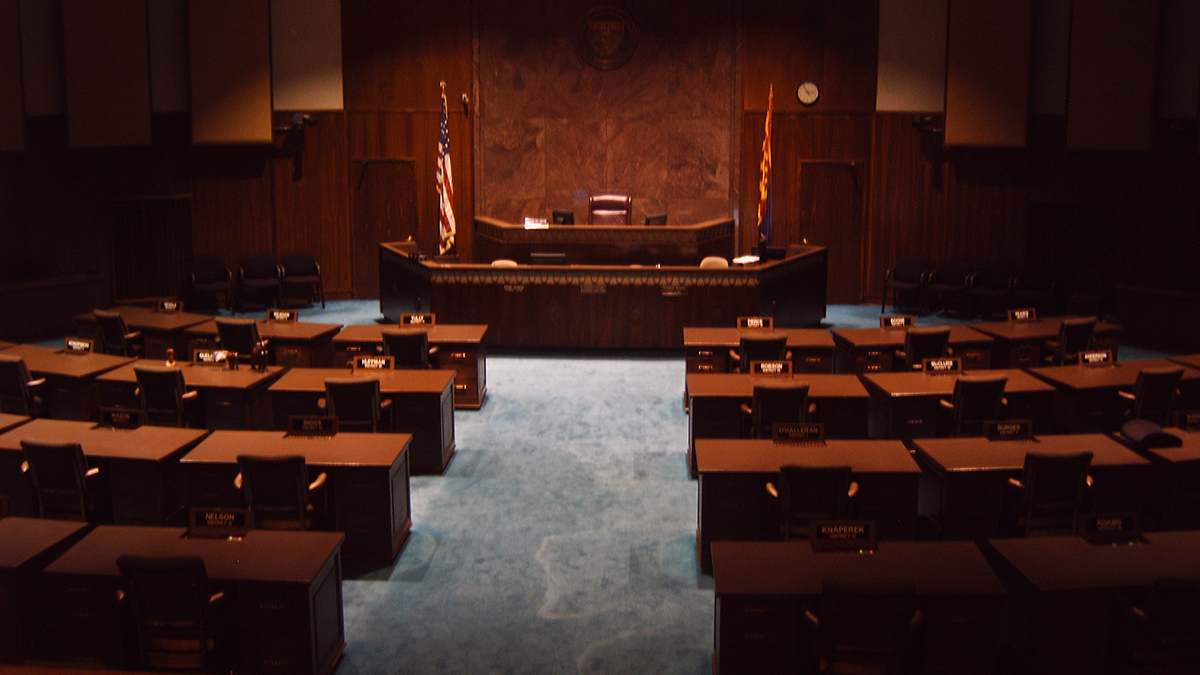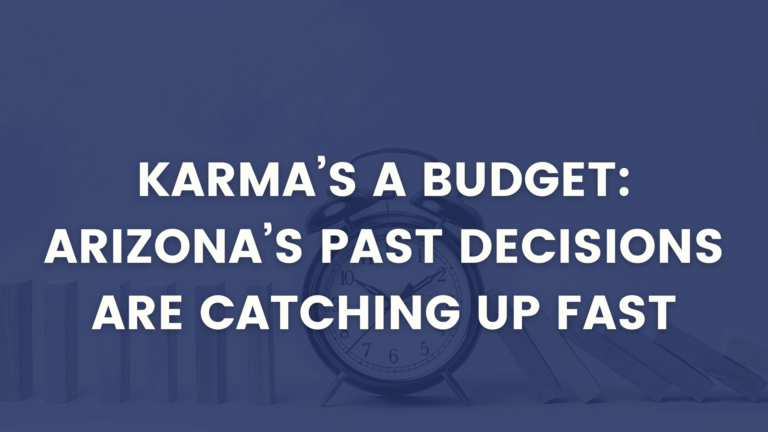
What did the Arizona legislature miss this year?
This year, state lawmakers in Arizona introduced more than 1,800 pieces of legislation. Committee chairs, using their power through rules and deadlines, select which bills receive a hearing for consideration. Every year many promising, important, and popular proposals fail to receive a hearing or committee vote through the legislative session.
Last week was the deadline for bills to be heard in committee. And while hearing every single bill is not feasible, there are many good proposals that deserve recognition and merit consideration for future legislative action.
- HB 2212 sponsored by former Representative Teller establishes a state transaction privilege tax (TPT) revenue sharing agreement with tribal nations, requiring the Department of Revenue to distribute 50 percent of TPT resources collected on reservation to tribal infrastructure and community development. In FY 2020, $57 million TPT revenues were collected on tribal lands, yet the state only returned and invested $2.5 million to tribal nations. This bill creates a guarantee revenue stream and includes tribal nations in TPT revenue sharing agreements.
- HB 2252 sponsored by Representative Powers Hannley raises the amount of cash assistance available to eligible families through the Temporary Assistance for Needy Families (TANF) program to bring all households to at least 40 percent of the 2020 federal poverty level. For years, the cash assistance amount has been frozen at 36 percent of the 1992 federal poverty level.
- HB 2255 sponsored by Representative Powers Hannley requires the Commerce Authority to report annually information on the investors and small businesses that participate in the small business investment tax credit. This bill aims to increase accountability by requiring a report that would include the number of investors, the amount of investments that qualified for the credit, the number of small businesses that received the investment, and the number of individuals employed.
- HB 2689 sponsored by Representative Pratt repeals the partial ban on individuals with certain drug felonies from enrolling in the Supplemental Nutrition Assistance Program (SNAP), granting access to nearly 1,500 individuals in Arizona. Currently, certain individuals who have completed their sentence still face barriers to enrolling in SNAP, which could greatly aid in restoring their economic well-being.
- SB 1191 sponsored by Senator Engel appropriates $85 million from the general fund to the Financial Aid Trust Fund for public universities and requires that at least 75 percent of the monies be awarded as need-base aid to resident undergraduate students. Currently, Arizona’s university Financial Aid Trust Fund receives only one-third of what the statutory formula requires.
- SB 1204 sponsored by Senator Mendez increases the minimum corporate income tax to $1,000. Currently, 74 percent of Arizona corporations paid the minimum tax of $50.
- SB 1521 sponsored by Senator Navarrete funds tax auditors and collectors in the Department of Revenue and requires reporting regarding the tax revenues collected by the additional staff. Auditors play an essential role in ensuring all Arizonans are paying their fair share.
- SB 1657 sponsored by Senator Mendez repeals Arizona’s pre-emption of cities (of population greater than 10,000) and counties (of population greater than 250,000) from regulating the construction of new residential housing to require the inclusion of affordable units. With this pre-emption still in place, cities cannot regulate to guarantee the construction of affordable units.
- SB 1665 sponsored by Senator Engel amends Arizona’s Landlord-Tenant Act to prevent landlords from evicting for nonpayment of rent when tenants have provided housing assistance as a form of partial payment. Currently, tenants in Arizona can still be evicted for nonpayment even when a landlord has accepted some housing assistance as a form of payment.
- SB 1756/ HB 2858 sponsored by Senator Quezada and Representative Terán these bills create a family and medical leave program to provide all of Arizona’s workers, including gig workers, contract workers, and the self-employed, with at least 24 weeks of paid leave each year. In the U.S., only 16% of workers currently have access to paid family and medical leave, preventing them from caring for a loved one or themselves.
- HB 2146, HB 2147, HB 2148, HB 2283, HB 2566, SB 1098, SB 1736, and SB 1737 prime sponsors include Representative Friese, Representative Lieberman, Senator Bowie, and Senator Marsh. These bills tighten laws pertaining to student tuition organizations (STOs) receiving donations from individual income taxpayers. Currently scholarships and grants funded by the individual income tax credit have no income requirement and 74 percent of scholarship awards went to household incomes above 185 percent of the federal poverty level. STOs are allowed to retain 10 percent of annual revenues to cover administrative costs. Many STOs allow donors to make recommendations for the student to receive the scholarship or grant.
This list is not exhaustive.
In a time when many Arizonans are facing hardships and barriers to improving their economic well-being, it is regrettable that many important and timely bills were not considered by the legislature this year. The Arizona Center for Economic Progress (AZCenter) will continue to uplift solutions and strong policies that build a better future for all Arizonans.



